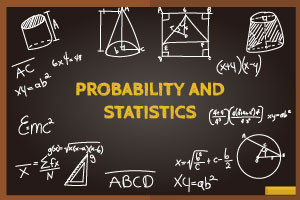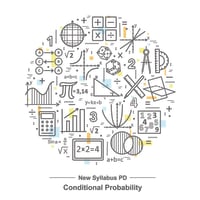Description
In this course, you will learn:
- Determine whether random variables are discrete or continuous.
- The expected value, variance, and moment generating function are all properties of random variables.
- Determine the functions of random variables and how to apply them in computer simulations.
- Recognize and extract marginal (one-dimensional) and conditional information from joint (two-dimensional) random variables.
- Remember the terms "independence" and "correlation."
- Work with the R statistical software and put it to use.
Syllabus:
1. Univariate Random Variables
- Introduction (FCPS §2.1)
- Discrete Random Variables (FCPS §2.2)
- Continuous Random Variables (FCPS §2.3)
- Cumulative Distribution Functions (FCPS §2.4)
- Great Expectations (FCPS §2.5.1)
2. Univariate Random Variables
- Moment Generating Functions (FCPS §2.6)
- Some Probability Inequalities (FCPS §2.7)
- Functions of a Random Variable (FCPS §2.8.1)
- Inverse Transform Theorem (FCPS §2.8.2)
3. Bivariate Random Variables
- Introduction (FCPS §§3.1.1−3.1.3)
- Marginal Distributions (FCPS §3.1.4)
- Conditional Distributions (FCPS §3.2)
- Independent Random Variables (FCPS §3.3.1)
- Consequences of Independence (FCPS §3.3.2)
- Random Samples (FCPS §3.3.3)
- Conditional Expectation (FCPS §3.4.1)
- Double Expectation (FCPS §3.4.2)
4. Bivariate Random Variables
- Random Sums of Random Variables (FCPS §3.4.3)
- Standard Conditioning Argument (FCPS §3.4.3)
- Covariance and Correlation (FCPS §3.5.1)
- Correlation and Causation (FCPS §3.5.2)
- A Couple of Worked Correlation Examples (FCPS §3.5.3)
- Some Useful Covariance / Correlation Theorems (FCPS §3.5.4)
- Moment Generating Functions, Revisited (FCPS §3.6)









